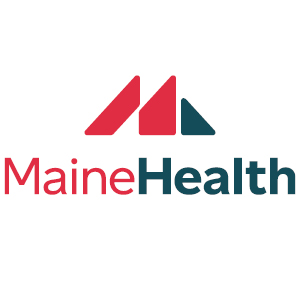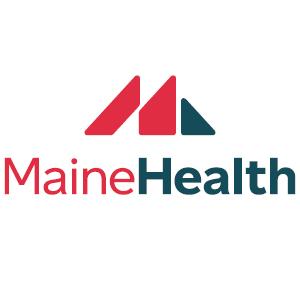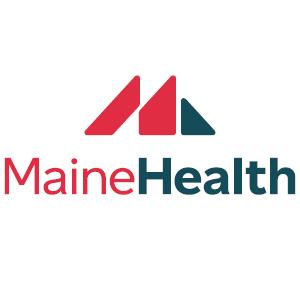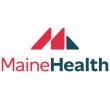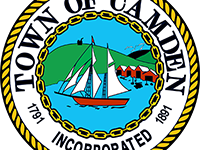Do you know the signs of a stroke?
When it comes to strokes, every minute counts.
Patients who arrive at the hospital immediately after the first signs of a stroke have the best chance of recovering with little if any long-term loss of function. As minutes pass, the chance of permanent damage to brain cells increases, along with the likelihood of loss of function.
“That’s why it’s important to know the signs of stroke,” says Eileen Hawkins, RN, MSN, CNRN, SCRN, coordinator of the stroke program at MaineHealth Pen Bay Hospital in Rockport. “As soon as a symptom presents itself, act fast. Call 911. There are treatments for the most common type of stroke but it is very important that you seek treatment immediately.”
Hawkins’ message comes during Stroke Awareness Month, recognized nationally every May since 1989 when President George H.W. Bush established it by proclamation.
Know the Signs
Stroke is a disease that affects the arteries leading to and within the brain. It is the fifth leading cause of death and a leading cause of disability in the United States.
A stroke occurs when a blood vessel that carries oxygen and nutrients to the brain is blocked by a clot or ruptures. Hawkins said the signs of stroke include:
Sudden confusion, trouble speaking or understanding.
Sudden numbness or weakness of the face, arm or leg, especially on one side of the body.
Sudden trouble seeing with one or both eyes.
Sudden trouble walking, dizziness or loss of balance and coordination.
Sudden severe headache with no known cause.
“Don’t ignore these signs,” Hawkins says. “Sometimes people develop one or more of these symptoms and think, ‘Maybe I’ll feel better if I lay down for a while.’ Don’t! If one of these symptoms presents itself, call 911 immediately.”
Prevention works
The best course of action is to prevent a stroke from happening in the first place. The American Stroke Association (ASA) says that approximately 80 percent of strokes are preventable.
“We can indeed control and treat several leading risk factors for stroke,” said Hawkins. “Most people are aware of the fact that a heart attack is a medical emergency, and immediate treatment is necessary. We can think of stroke as a ‘brain attack.’ We should seek immediate treatment with any warning sign of stroke and be aware that, just as with heart attacks, healthy lifestyle modifications will reduce our risk of having a first- time stroke, or a recurrent stroke.”
Below are six educational tips for reducing stroke risk. Share this information from the American Heart Association/American Stroke Association with your family and friends.
High blood pressure is the number one cause of stroke. Managing your blood pressure plays a big role in lowering your stroke risk.
Cholesterol or plaque build-up in the arteries can block normal blood flow to the brain and cause a stroke. All adults age 20 and older should have their cholesterol checked at least once every five years.
Atrial fibrillation (AF) is a type of irregular or "racing" heartbeat that can cause blood to collect in the heart and potentially form a clot, which can travel to a person's brain and cause a stroke. Unfortunately, many Americans who have AF don't know it.
Diabetes can double or quadruple your risk for stroke. Talk to your doctor and learn how to manage your diabetes and stroke risk.
Tobacco use, smoking and alcohol use increase your risk for stroke. Consider quitting smoking or tobacco use and drinking alcohol in moderation.
Physical inactivity, poor diet, and obesity can increase your risk of high blood pressure, high cholesterol, diabetes, heart disease and stroke. Talk to your doctor to learn steps you can take to improve your diet and make your life more active.
For more information about stroke and stroke prevention, visit stroke.org.
MaineHealth Pen Bay Hospital is a certified Joint Commission Primary Stroke Center. This certification of distinction is awarded to hospitals that make exceptional efforts to foster better outcomes for stroke. The Pen Bay Stroke Program is also the recipient of the American Heart & Stroke Association Get With the Guidelines® Gold Plus and Target Stroke Performance Achievement Awards.
MaineHealth is a not-for-profit, integrated health system whose vision is, “Working together so our communities are the healthiest in America,” and is committed to a mission of providing high-quality affordable care, educating tomorrow's caregivers and researching better ways to provide care. MaineHealth includes a Level 1 trauma medical center, eight additional licensed hospitals, comprehensive pediatric care services, an extensive behavioral health care network, diagnostic services as well as home health, hospice and senior care services. With more than 2,000 employed providers and approximately 23,000 care team members, MaineHealth provides preventive care, diagnosis and treatment to 1.1 million residents in Maine and New Hampshire. MaineHealth hospitals include MaineHealth Behavioral Health at Spring Harbor in Westbrook, MaineHealth Franklin Hospital in Farmington, MaineHealth Lincoln Hospital in Damariscotta, MaineHealth Maine Medical Center in Portland, Biddeford and Sanford, MaineHealth Memorial Hospital in North Conway, N.H., MaineHealth Mid Coast Hospital in Brunswick, MaineHealth Pen Bay Hospital in Rockport, MaineHealth Stephens Hospital in Norway and MaineHealth Waldo Hospital in Belfast. MaineHealth also includes the MaineHealth Barbara Bush Children’s Hospital in Portland, MaineHealth Behavioral Health in Westbrook, MaineHealth Home Health and Hospice in Saco, the MaineHealth Institute for Research in Scarborough, the MaineHealth Medical Group and MaineHealth NorDx in Scarborough. MaineHealth affiliates include Maine General Health in Augusta and Waterville and St. Mary's Health System in Lewiston. It is also a significant stakeholder in the MaineHealth Accountable Care Organization in Portland and a joint venture partner in the New England Rehabilitation Hospital in Portland.

